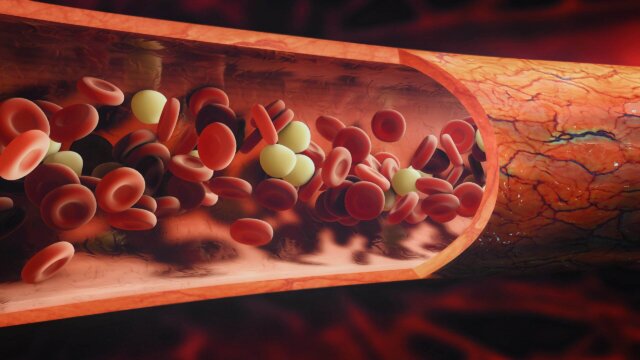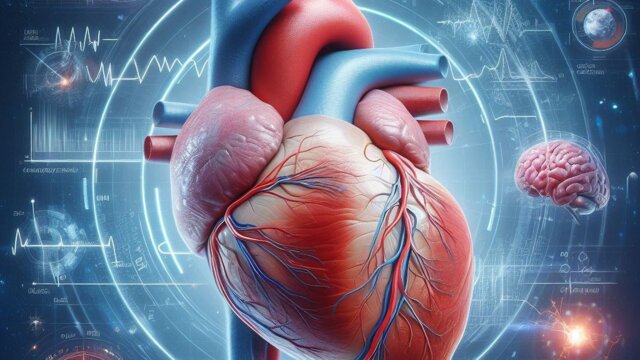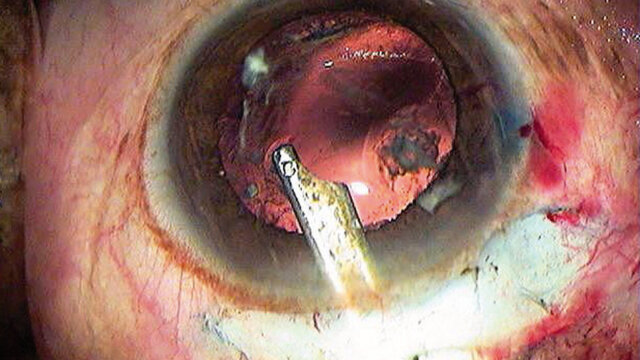FTC disclaimer: This post may contains affiliate links and we will be compensated if you click on a link and make a purchase.
Chronic diarrhea affects about 5% of people worldwide. If you’re dealing with ongoing digestive problems, you’re not alone. This article will cover the causes, signs, and ways to treat chronic diarrhea. It aims to help you manage your digestive health better.
Chronic diarrhea means having loose, watery stools for over four weeks. This can really affect your life, causing discomfort, dehydration, and even malnutrition if not treated. It’s important to know the causes and get the right medical help to manage it.
Key Takeaways
- Chronic diarrhea is a persistent digestive condition that affects millions worldwide.
- Causes range from dietary factors and medications to underlying medical conditions like irritable bowel syndrome, Crohn’s disease, and celiac disease.
- Symptoms can include frequent, watery stools, dehydration, malabsorption, and rectal soreness.
- Seeking medical attention is crucial for diagnosing the cause and implementing the right treatment plan.
- Effective management strategies may involve dietary changes, medications, and addressing any underlying health issues.
What is Chronic Diarrhea?
Definition and Overview
Chronic diarrhea means having loose, watery stools often for more than four weeks. It’s different from acute diarrhea, which usually goes away in a few days. This ongoing issue can make daily life tough and is caused by many things like food sensitivities, some medicines, and health problems.
There are many reasons why someone might have chronic diarrhea. Too much coffee, tea, alcohol, or certain sugars can cause it. Some medicines like NSAIDs, PPIs, and antibiotics can also lead to it. Not absorbing enough water and electrolytes, or making too much, can cause watery stools. Some diseases can make you have secretory diarrhea. Fatty diarrhea happens when the body can’t break down fats well, often because of gut bacteria. Inflammatory diarrhea is when the colon gets inflamed, causing small, frequent stools and stomach pain.
Chronic diarrhea can really affect someone’s life, making them feel less confident and impacting their work and happiness. It can also lead to dehydration and imbalance of electrolytes, which can be serious.
It’s important to understand chronic diarrhea to manage it better. By knowing what causes it and getting the right medical help, people can feel better and live better.
Causes of Chronic Diarrhea
Chronic diarrhea lasts more than two to four weeks. It can have many causes. Knowing what foods and medicines might cause it is key to managing it well.
Dietary Factors
Some foods and drinks can make diarrhea last long. Drinking more than two or three cups of coffee or tea a day can do this. Foods with artificial sweeteners like sorbitol and too much fructose in fruits, candies, and drinks can also cause it. People with lactose intolerance might also have chronic diarrhea.
Medications and Supplements
Many medicines, like antibiotics and antidepressants, can cause diarrhea. Things like misoprostol, antacids with magnesium hydroxide, laxatives, and some supplements can too. Even some drugs for “regularity” and alcohol and caffeine can cause it. Sometimes, having had intestinal surgery can also lead to chronic diarrhea.
Dietary Factors | Medications and Supplements |
|---|---|
|
|
Looking at what you eat, past surgeries, medicines, and where you’ve traveled can help find the cause of chronic diarrhea. This can often avoid needing many tests.
Fixing diet and medicine issues is key to handling chronic diarrhea and better digestion. Talking to a doctor can help find out what’s causing it and how to treat it.
Types of Chronic Diarrhea
Chronic diarrhea lasts over 4 weeks. It comes in three main types: watery, fatty, and inflammatory. Knowing about types of chronic diarrhea helps doctors treat it right.
Watery Diarrhea
Watery diarrhea happens when the colon can’t absorb enough water and electrolytes. It often comes from lactose intolerance, sorbitol, or fructose intolerance. These issues are more common in African-Americans and Asian-Americans.
Fatty Diarrhea
Fatty diarrhea means there’s too much fat in the stool. It can make you feel nauseous, have indigestion, and lose weight. It’s often from chronic pancreatitis, caused by drinking too much alcohol.
Inflammatory Diarrhea
Inflammatory diarrhea is from inflammation in the colon. It leads to more bowel movements, pain, fever, and bleeding. Conditions like inflammatory bowel disease (IBD) cause this.
About 3 to 5 percent of people get chronic diarrhea. Women get irritable bowel syndrome, a cause of chronic diarrhea, twice as often as men.
Knowing the types of chronic diarrhea helps doctors make better treatment plans. This way, they can help patients feel better and live better lives.
Watery Chronic Diarrhea
Chronic diarrhea means having three or more loose stools a day for over four weeks. It comes in two main types: osmotic and secretory. Knowing why you have watery chronic diarrhea helps find the right treatment.
Osmotic and Secretory Causes
Osmotic diarrhea happens when your body can’t absorb nutrients well, pulling in more water. This can be from lactose intolerance, some health issues, or certain medicines. Secretory diarrhea, however, is when your colon makes too much fluid. It’s often seen with irritable bowel syndrome, inflammatory bowel diseases, or infections.
Viruses are a big cause of acute watery diarrhea, especially in kids and adults. Chronic diarrhea can come from many things, like not absorbing fats well, inflammation, or mostly watery diarrhea. If you have loose or watery stools for more than three or four weeks, see a doctor.
Some foods and medicines can cause osmotic diarrhea. Things like citrates, phosphates, and sugar alcohols can do this. Also, some medicines, like antibiotics, can lead to chronic diarrhea.
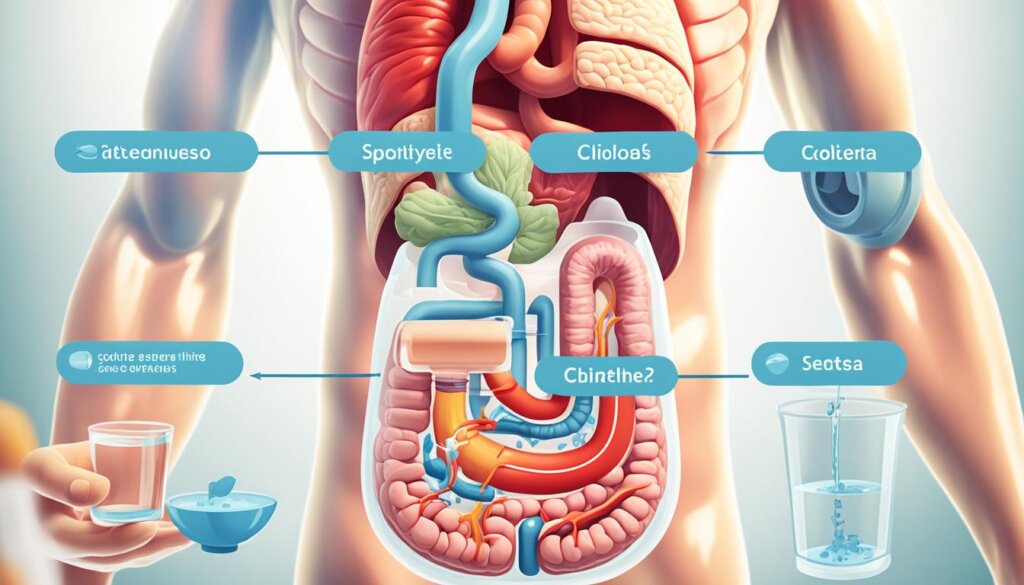
Watery diarrhea can be caused by many things, like functional disorders or not digesting food well. Bacteria toxins, like in cholera, can also cause ongoing symptoms in people with weak immune systems.
“Reliable health information can be accessed through organizations like the National Library of Medicine and the National Institute of Diabetes and Digestive and Kidney Diseases.”
Fatty Chronic Diarrhea
Fatty chronic diarrhea means your stool has a lot of extra fat. This makes it look greasy, smell bad, and be very big. It usually happens when your body can’t digest fats well. This can be due to issues like not absorbing nutrients properly, too many bad bacteria in your gut, or problems with your pancreas or small intestine.
This condition pulls in more water, making your stool loose and fatty.
It’s important to find out why you have fatty diarrhea to treat it right. Some common reasons include:
- Malabsorption disorders: These are conditions like celiac disease, Crohn’s disease, and tropical sprue. They make it hard for your body to absorb fats, leading to fatty diarrhea.
- Bacterial overgrowth in the small intestine: Too many bad bacteria in your small intestine can mess with how you digest and absorb fats.
- Pancreatic insufficiency: If your pancreas doesn’t make enough enzymes, it can’t break down fats well, causing fatty diarrhea.
- Bile acid malabsorption: Some conditions, like Crohn’s disease, can affect how your body absorbs bile acids. This can lead to fatty diarrhea.
Doctors might do tests like fecal fat analysis, D-xylose testing, or imaging to figure out why you have fatty diarrhea. Treatment depends on the cause. It might mean changing your diet, taking enzymes, bile acid, or getting vitamins to fix any shortages.
Knowing what causes fatty chronic diarrhea and how to treat it can really help. It can make you feel better and improve your digestion.
Fatty chronic diarrhea is a big health issue in the U.S., affecting millions each year. It can be costly and really affect your life quality. Finding and treating the cause is key to helping patients and easing the burden of this condition.
Cause | Prevalence | Diagnostic Tests | Treatment |
|---|---|---|---|
Malabsorption disorders (e.g., celiac disease, Crohn’s disease) | Varies depending on the underlying condition | Fecal fat analysis, D-xylose test | Addressing the underlying condition, dietary modifications |
Bacterial overgrowth in the small intestine | Estimated to affect 2.5-22% of the population | Breath tests, small intestine bacterial overgrowth (SIBO) test | Antibiotics, dietary changes, probiotics |
Pancreatic insufficiency | Affects approximately 10% of the population | Fecal elastase test, imaging studies | Pancreatic enzyme replacement therapy (PERT) |
Bile acid malabsorption | Affects up to 1 in 3 individuals with chronic diarrhea | Selenium-75-homocholic acid taurine (SeHCAT) test | Bile acid sequestrants, dietary changes |
“Identifying and addressing the underlying cause of fatty diarrhea is crucial for effective management.”
Inflammatory Chronic Diarrhea
Inflammatory chronic diarrhea is linked to conditions that cause colon inflammation, like inflammatory bowel diseases (IBDs). Crohn’s disease and ulcerative colitis are two main IBDs causing chronic diarrhea. These conditions make the colon less able to absorb water, leading to frequent, small, and possibly bloody bowel movements. Microscopic colitis can also cause chronic, watery diarrhea.
Inflammatory Bowel Conditions
It’s key to find and treat the inflammation for this type of chronic diarrhea. In the U.S., Crohn’s disease and ulcerative colitis are common IBDs causing chronic diarrhea. Inflammatory bowel syndrome (IBS) can also switch between chronic constipation and diarrhea.
High levels of white blood cells or calprotectin in stool can show intestinal inflammation. To treat this, doctors might use corticosteroids or immunosuppressive drugs. Changing your diet and lifestyle can also help by avoiding certain foods and eating low-fiber foods.
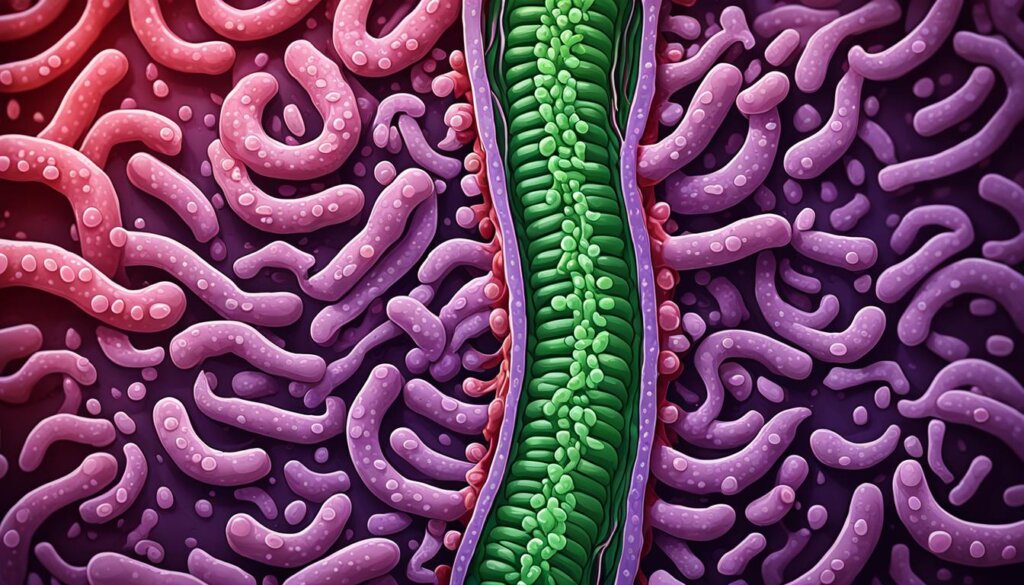
“Chronic diarrhea can be a symptom of gastrointestinal conditions like inflammatory bowel disease (IBD) or a result of infection.”
To prevent inflammatory chronic diarrhea, it’s important to handle food safely and wash hands well to avoid infections. Chronic diarrhea can lead to dehydration and malnutrition by taking away important nutrients.
Research is ongoing to improve how we manage chronic diarrhea and its inflammatory causes. Studies look into how common these conditions are, how to diagnose them, and the best treatments.
Symptoms of Chronic Diarrhea
The main sign of chronic diarrhea is often passing watery stools often. People with this condition might also feel stomach pain or cramps, feel bloated, have nausea, vomit, or lose weight. How bad and how long these symptoms last can depend on the cause.
Inflammatory diarrhea is a type of chronic diarrhea caused by colon inflammation. It makes the colon swell and leads to more bowel movements. Diarrhea can happen in the small or large intestine, causing belly pain, bloating, nausea, vomiting, fever, blood in stool, mucus in stool, and needing to go to the bathroom urgently.
It’s important to know all the symptoms of chronic diarrhea to get medical help fast and start the right treatment. Diarrhea usually doesn’t last long, but if it does for weeks, it could mean a serious issue like IBS, celiac disease, or IBD.
Symptom | Description |
|---|---|
Frequent Bowel Movements | Passing loose, watery stools three or more times per day for at least four weeks. |
Abdominal Pain or Cramps | Discomfort or cramping in the abdomen that may be associated with diarrhea. |
Bloating | Feeling of fullness or tightness in the abdomen. |
Nausea and Vomiting | Unpleasant sensations and expulsion of stomach contents. |
Weight Loss | Unintentional loss of body weight due to the inability to properly absorb nutrients. |
“Recognizing the full spectrum of symptoms associated with chronic diarrhea is crucial for seeking timely medical attention and initiating appropriate treatment.”
When to See a Doctor
Dealing with persistent diarrhea can be frustrating and concerning. It’s important to know when to seek medical help. If your diarrhea lasts more than two days and doesn’t get better, you should see a doctor. If it lasts over 4 weeks, it could mean a serious illness like inflammatory bowel disease (IBD).
If you have symptoms like dehydration, severe stomach pain, bloody stools, or a fever over 102°F, don’t wait to get medical help. These signs could mean you have a serious issue like inflammatory bowel disease or Crohn’s disease. For kids, diarrhea can cause dehydration fast, so seeing a doctor quickly is key if it doesn’t get better in a day or if dehydration signs show.
- See a doctor if your diarrhea lasts over two days and doesn’t improve.
- Get medical help right away if you have dehydration, severe stomach pain, bloody stools, or a high fever.
- For kids, see a doctor if diarrhea doesn’t get better in a day or if dehydration signs appear.
Getting medical help quickly is key to finding out why you have chronic diarrhea and getting the right treatment. Your doctor might do tests like stool samples or scans to find the cause.

“Chronic diarrhea can be a sign of a serious condition. Don’t ignore it. Getting medical help is important for the right diagnosis and treatment.”
Symptom | When to See a Doctor |
|---|---|
Diarrhea lasting longer than 2 days | Seek medical attention |
Dehydration, severe abdominal/rectal pain, bloody/black stools, fever above 102°F | Seek immediate medical care |
Diarrhea in children not improving within 24 hours or signs of dehydration | Contact a doctor promptly |
Remember, getting medical help quickly is key to finding out why you have chronic diarrhea and getting the right treatment. Don’t hesitate to talk to your healthcare provider if you’re worried about your digestive issues.
Diagnosing the Cause of Chronic Diarrhea
Finding out why you have chronic diarrhea takes a detailed check-up. Your doctor will start by asking about your health history. They want to know how often you have diarrhea, what it’s like, and if your diet, medicines, or travel might be causing it.
Your doctor will also do a physical check-up. They might look for signs of dehydration or belly pain. These signs could help figure out why you have diarrhea.
To find the cause, your doctor might run some tests. These include:
- Stool tests to look for bacteria, parasites, or other causes
- Blood tests to check your electrolyte levels and kidney function
- Hydrogen breath tests to see if you’re lactose intolerant
- Endoscopic procedures, like a colonoscopy or upper endoscopy, to see inside your gut and take tissue samples
These tests can show what’s causing your chronic diarrhea. It could be an infection, intolerance to certain foods, or another health issue.
Working with your doctor to find the cause is the first step to getting better. You can then start a treatment plan to help your digestion.
Treating Chronic Diarrhea
Managing chronic diarrhea often means changing your diet and taking medicines. Starting with diet changes can help ease symptoms. Try avoiding foods like dairy, high-fat items, or those with lots of sugar. Incorporating probiotics into your diet can also help balance gut bacteria and improve digestion.
If diet changes don’t work, doctors may suggest medicines. These can be antidiarrheal drugs, anti-inflammatory medications, or antibiotics for infections. The right treatment depends on the cause and how you react to different options.
Dietary Changes and Medications
For diarrhea that lasts less than two weeks, you can try over-the-counter meds like loperamide (Imodium) or bismuth subsalicylate (Pepto-Bismol, Kaopectate). But be careful with these in infants and young kids, as they can be harmful.
If diarrhea lasts more than 14 days, doctors may give you specific treatments. This could be antibiotics for infections, medicines for conditions like Crohn’s disease, or treatments for parasites. Probiotics might also be suggested to balance gut bacteria.
It’s key to prevent dehydration, especially in young kids and older adults, as it can be dangerous. Drinking fluids with electrolytes is important. For kids, over-the-counter solutions like Pedialyte are good for diarrhea.
Don’t use over-the-counter meds for chronic diarrhea without a doctor’s advice. Babies under 3 months with diarrhea need to see a doctor right away. Foods like bananas, rice, applesauce, and toast can help with diarrhea. But avoid alcohol, greasy foods, and foods high in fiber like broccoli and cabbage.
Treatment Approach | Recommended Interventions |
|---|---|
Dietary Changes |
|
Medications |
|
“Proper rehydration is crucial, especially for young children and older adults, as dehydration from diarrhea can be life-threatening.”
Long-Term Effects of Chronic Diarrhea
Chronic diarrhea can lead to serious health problems if not treated. It can cause dehydration by losing too much fluid and electrolytes. This can harm the heart, lungs, brain, and nervous system. It can also lead to kidney disease due to electrolyte imbalances.
Chronic diarrhea can really affect your life. It makes it hard to work, socialize, and handle daily tasks. It’s important to deal with these effects to stay healthy and happy.
Dehydration and Electrolyte Imbalance
Dehydration is a big issue with chronic diarrhea. Losing too much fluid and electrolytes can cause serious health problems. This includes issues with the heart, lungs, brain, and nervous system. It can also lead to kidney disease due to electrolyte imbalances.
It’s key to address the long-term effects of chronic diarrhea. Getting medical help quickly and following treatment can prevent serious problems.
Preventing Chronic Diarrhea
Chronic diarrhea can have many causes. But, you can take steps to prevent some types. Handwashing often is key to stopping the spread of diarrhea. When traveling to places with poor water, be careful with what you eat and drink. Getting vaccinated against things like rotavirus can also help. Eating well and avoiding foods that can cause diarrhea can also help.
Handwashing and Travel Precautions
Washing your hands with soap and water stops diarrhea from spreading. In places with bad water, be careful with your food and water. Don’t eat raw or undercooked foods and use bottled or treated water. Getting vaccinated against rotavirus can also protect you from getting diarrhea while traveling.

By being careful, you can lower your risk of getting chronic diarrhea. Good hygiene and safe food and water choices are key.
Chronic Diarrhea
Chronic diarrhea is a long-lasting and often tough condition. It can really affect someone’s life quality. In the U.S., many people deal with it, often because of irritable bowel syndrome (IBS), inflammatory bowel disease (IBD), or other issues.
This condition can really change how you feel and live, from being a bother to very serious. It’s important to know what causes it, like food, medicines, or health problems, to manage it well.
- Many times, diet is the main cause, like from coffee, alcohol, some sugars, or food allergies.
- Some medicines and supplements can also cause it, like NSAIDs, certain stomach medicines, antibiotics, and some herbal supplements.
- There are different kinds of diarrhea, like watery, fatty, or inflammatory, each with its own reasons.
- Inflammatory diarrhea happens when the colon gets inflamed and can make you feel sick, have a fever, or bleed.
Knowing the types of chronic diarrhea helps. Getting medical help when needed and using the right treatments can make a big difference in your health.
If you keep having loose or watery stools for more than a few weeks, or if you have other serious symptoms, see a doctor. They might suggest trying different treatments before doing more tests.
To help, you might need to change your diet, stop certain medicines, or use special medicines. Sometimes, you might need fluids through an IV to prevent dehydration.
Chronic diarrhea can make you lose a lot of water and important minerals, which can be bad for your health. Always talk to your doctor about your condition and what treatment options you have, including the risks and benefits.
Common Causes of Chronic Diarrhea | Symptoms and Effects |
|---|---|
|
|
In summary, chronic diarrhea is a complex issue with many causes, from food to health problems. Understanding the types and getting the right medical care can help manage symptoms and reduce its effects.
Conclusion
Chronic diarrhea is a tough condition that needs a full approach to handle. Knowing the causes, like food, meds, and health issues like Irritable Bowel Syndrome (IBS), Crohn’s disease, ulcerative colitis, and celiac disease, helps you act early. Also, knowing the types of chronic diarrhea, like watery, fatty, and inflammatory, helps pick the right treatment.
Changing your diet, managing meds, and treating health issues can help with symptoms of chronic diarrhea. Making lifestyle changes, like drinking plenty of water, exercising, and joining support groups, is also key.
More research and learning about chronic diarrhea is important. It helps people handle their condition better and improve their quality of life. By staying informed, getting medical help when needed, and working with doctors, you can manage your digestive health well. This way, you can deal with persistent diarrhea, long-term diarrhea, and recurrent diarrhea.
FAQ
What is chronic diarrhea?
Chronic diarrhea means you often pass loose, watery stools for over four weeks. It’s different from short-term diarrhea that goes away quickly. This long-term issue can really affect your life.
What are the common causes of chronic diarrhea?
Many things can cause chronic diarrhea. This includes food, medicines, and health problems. Foods and drinks, some medicines, and certain health issues can lead to it.
What are the different types of chronic diarrhea?
There are three main types of chronic diarrhea. Watery diarrhea happens when the colon can’t hold enough water and electrolytes. Fatty diarrhea means your stool has too much fat. Inflammatory diarrhea is caused by inflammation in the colon.
How can watery chronic diarrhea be further classified?
Watery chronic diarrhea can be split into two types. Osmotic diarrhea is from nutrients that can’t be fully absorbed, drawing in water. Secretory diarrhea is from diseases that make the colon secrete more fluids than it absorbs.
What causes fatty chronic diarrhea?
Fatty chronic diarrhea comes from problems with digesting and absorbing fats. This includes issues like malabsorption disorders, small intestine bacterial overgrowth, pancreatic problems, or celiac disease. Undigested fats pull in more water, making stools loose and fatty.
What are the common symptoms of chronic diarrhea?
Chronic diarrhea’s main symptom is often passing loose, watery stools. You might also feel abdominal pain or cramps, have bloating, nausea, vomiting, or lose weight.
When should you seek medical attention for chronic diarrhea?
See a doctor if your diarrhea lasts more than two days or gets worse. Look for signs like dehydration, severe stomach or rectal pain, bloody stools, or a fever over 102°F (39°C).
How is the cause of chronic diarrhea diagnosed?
Finding the cause of chronic diarrhea involves a full check-up, including your health history and a physical exam. Doctors may also do tests like stool tests, endoscopies, imaging tests, and blood work.
How is chronic diarrhea treated?
Treating chronic diarrhea often means changing your diet and taking medicines. Avoiding certain foods and using probiotics can help. Doctors might also prescribe drugs like antidiarrheal medicines, anti-inflammatory drugs, or antibiotics.
What are the long-term effects of untreated chronic diarrhea?
Untreated chronic diarrhea can lead to dehydration and electrolyte imbalances. It can also harm your heart, lungs, brain, and nervous system. It can make daily life hard, affecting work, social life, and daily tasks.
How can chronic diarrhea be prevented?
Some diarrhea can’t be prevented, but you can lower the risk. Keep clean, be careful with food and water when traveling, and eat well to avoid foods that can cause diarrhea.



